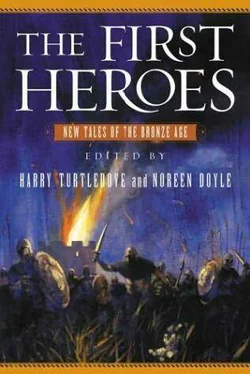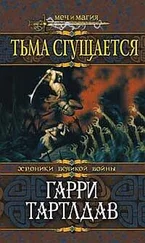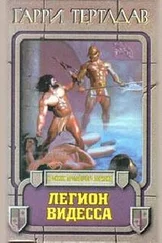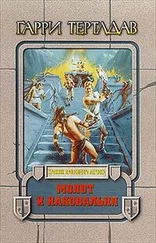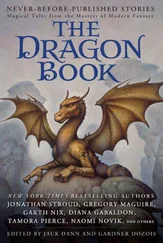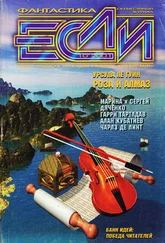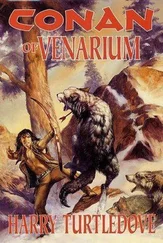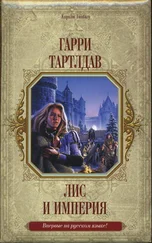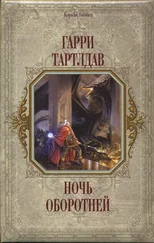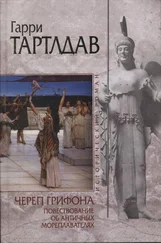Гарри Тертлдав - The First Heroes
Здесь есть возможность читать онлайн «Гарри Тертлдав - The First Heroes» весь текст электронной книги совершенно бесплатно (целиком полную версию без сокращений). В некоторых случаях можно слушать аудио, скачать через торрент в формате fb2 и присутствует краткое содержание. Жанр: Фантастика и фэнтези, на английском языке. Описание произведения, (предисловие) а так же отзывы посетителей доступны на портале библиотеки ЛибКат.
- Название:The First Heroes
- Автор:
- Жанр:
- Год:неизвестен
- ISBN:нет данных
- Рейтинг книги:3 / 5. Голосов: 1
-
Избранное:Добавить в избранное
- Отзывы:
-
Ваша оценка:
- 60
- 1
- 2
- 3
- 4
- 5
The First Heroes: краткое содержание, описание и аннотация
Предлагаем к чтению аннотацию, описание, краткое содержание или предисловие (зависит от того, что написал сам автор книги «The First Heroes»). Если вы не нашли необходимую информацию о книге — напишите в комментариях, мы постараемся отыскать её.
The First Heroes — читать онлайн бесплатно полную книгу (весь текст) целиком
Ниже представлен текст книги, разбитый по страницам. Система сохранения места последней прочитанной страницы, позволяет с удобством читать онлайн бесплатно книгу «The First Heroes», без необходимости каждый раз заново искать на чём Вы остановились. Поставьте закладку, и сможете в любой момент перейти на страницу, на которой закончили чтение.
Интервал:
Закладка:
This is only a brief scene. Even a novelization can't be incessant action.
I'll give it a paragraph. One can introduce new themes in that little space, establish a counterpoint, okay? If I write more the editors will cut it.
Clay soldiers stood atop the house's perimeter, like invaders breaching the city walls. With an annoyed cry Nanshe swept them clear, but the point returned to her as she lay remembering: Sud thought in terms of armies because the lugals did; the cities did—it was the way things were. Perhaps the gods did.
War with Umma precluded trade with Umma, but Umma (Nanshe's father often said this) produced little that Lagash did not, and competed with Lagash for trade elsewhere. If the arrogance of Umma's people regarding water boundaries roused Ningirsu's ire, there was no reason why Lagash's merchants should question the will of the city.
Shock troops thunder across the plain, impossibly loud, each chariot drawn by two onagers. Lugal Eannatum's chariot commands four, and the songs will declare that it moved twice as fast. They far outpace the infantry, which disappears behind boiling clo uds of dust, emerging seconds later, a forest of speartips glinting above their helmets, like figures marching out of a mountainside. The enemy ranks break and scatter, and though the chariots do not run them down as in song, no soldier stands fast to attack as they sweep through the line, causing spearmen to drop shields, spring away like panicked grasshoppers, trample each other. Umma's own chariots, fewer and slower, have not yet reached the advancing Lagashites, who see the rout, roar terrify-ingly, and present spear tips to the spooked Umman onagers. The plain dissolves into a swirling chaos of smoke, noise, and trembling earth, but the contest is already over.
The sickle-sword in Eannatum's hand would be portrayed in stelae and (now lost) wall paintings, the implicit metaphor—of his enemy falling like wheat before him—apparent to the most unsophisticated viewer. Sumer's plains, where nothing stands waving in ranked thousands but the wind-tossed stalks, themselves compel the image. Shall Ninlil, goddess of grain, bow down like grain before warlike Inanna?
As her city did before Inanna's. That is the story—Gilgamesh of Uruk's—he wants most to write, the wordstring that will reach from inscribed clay to etched polycarbonate. Beginning with young Gil-gamesh's defeat of Agga's army and ending with the elder king building a shrine in subjugated Nippur, it will bracket the period (a few years, presumably, of his early maturity) when Gilgamesh gained and lost Enkidu, and so must deal with it, though in terms a gamer will not balk at. If Gilgamesh's triumphs over Kish and Ur are dramatized with suitable elan—Trent accepts that there must be several battle scenes— then the reader will sit still for the journeys to the Cedar Forest and the netherworld: perhaps even in the less familiar Sumerian versions. The harmonics of mythopoesis, echoing even from this profoundly alien culture, can inform any story, however strong its appeal to gamers.
He is trying to decide whether The Epic of Gilgamesh and the earlier poems can be considered either iliads or odysseys. Declaring the Epic an odyssey is banal but probably unavoidable, just as "Gilgamesh and Agga," the only Sumerian Gilgamesh poem not to have been incorporated into the Epic, is an iliad in every respect. Role-playing games are all iliads, since they deal with battles, depict societies primarily in terms of their ability to sustain a war effort, and see individual psychology only through the lens of fitness for combat.
Longingly he thinks again of Enmerkar, the figure not in the carpet, whose presence in the Wake he yearns to discover. He suspects that Enmerkar and his friend Lugalbanda were the models for Gilgamesh and Enkidu, but the fragmentary nature of the few surviving tablets leaves this unclear. For these oldest of texts Queneau's schematic dissolves, and we are confronted with the stuff of myth, which Trent wants to rub between his fingers, raise to his nose. O show me the substrate of meaning, psyche's bedrock.
What did Lugalbanda cry when he awoke and found that his companions had left him for dead? The steppes of Mount Hurum, dry and desolate, must have seemed the Sumerian underworld; did he realize at first that he still lived? The tablet here crumbles into powder, the rest of the story is lost.
Enmerkar and the army commanded by his seven heroes succeed in subjugating Aratta (the poem could hardly have gone otherwise), and they return to Erech along their original route, intending to reclaim Lugalbanda's body and bear it home. Upon reaching Mount Hurum,
1. They find Lugalbanda, who has been roaming the steppes in despair. He la. is overjoyed to see them, or perhaps reproachful, but accepts in the end his retrieval by his peers and his return to the land of the living. lb. rages and does not forgive; the story becomes one of irreparable breach.
2. They do not find Lugalbanda, who 2a. has wandered deeper into the wilderness. 2b. has been taken away by the gods. Trent imagines more pathways, a thorough exploration of the branching possibilities that, like books opened in dreams, can appear but not actually be read. Some he knows can't work: it's the Greek gods who take up petitioners in extremis and turn them into constellations. Nor can Lugalbanda break with Enmerkar; Sumerian myths don't deal with character conflict in that way. So Enmerkar and Lugalbanda are reunited; the ordeal of Lugalbanda abandoned is a wound that heals up by poem's end.
Such wounds make us feel what we can't understand: that's what myth is. Niobe, still weeping for her children though turned to stone, or the centaurs' anguished thrall to wine and lust, retain their power to claw at the reader. The Wake doesn't claw, though the great man, a lesser writer in every other way, knew enough to.
Untitled, obscure in meaning, often fragmentary, the two or three dozen narrative poems that exist in Sumerian versions seem too blunt and odd to move us as the Greek myths can. Except for the line about mankind being created from "the clay that is over the abyss," the only tale that Trent found deeply affecting was Lugalbanda's abandonment on Hurum and his undescribed reaction.
Mount Hurum is not on Ziggurat's map—no one knows where it is—and Trent recognizes that his novels must reside within the game's geography. He hovers above the plain, watching the words IRAQ and BAGHDAD fade away and the coastline press inward until it is resting against the city that now labels itself Ur. Trent begins to fall, slowly at first, then faster as the land below grows larger and more detailed until it tilts abruptly away, like the view from a plane pulling out of a dive, and he is skimming above a landscape that has lost its lettering and cartographic flourishes and assumed almost the realistic detail of a desert seen in the opening shot of a nature documentary.
A ripple breaks the horizon's flatline, and at once the ground flashing below is not sand but cultivated fields, divided by roads and levees. The structures ahead swell and gain definition, a great wall bristling with towers, its ramparts topped only by the central ragged pyramid. The viewpoint circles the city center, temple and palace readily identifiable (Trent remembers close-ups of them) and the ziggurat's corrugated slopes rendered in vivid detail, then swoops down to alight in the central square.
The city is full but empty, for Trent knows (with the logic of dreams) that moving crowds would strain the resources of role-playing games: yet this is the Uruk of his book, anchored to the CD-ROM yet ranging freely, ungameably peopled by people. Trent moves through the throng in this confidence, secure in his characters' imaginative reality even as their bodies pass through him, or perhaps his through them. Cinched tight by the city walls, the crowded buildings radiated heat—unrelieved by winds—and a terrible stench, electronically imperceptible but evoked, made real in the mind's nostrils, by the twining long molecules of words, complex chains that twist to do anything, like wisps of smoke weaving themselves into firewood.
Читать дальшеИнтервал:
Закладка:
Похожие книги на «The First Heroes»
Представляем Вашему вниманию похожие книги на «The First Heroes» списком для выбора. Мы отобрали схожую по названию и смыслу литературу в надежде предоставить читателям больше вариантов отыскать новые, интересные, ещё непрочитанные произведения.
Обсуждение, отзывы о книге «The First Heroes» и просто собственные мнения читателей. Оставьте ваши комментарии, напишите, что Вы думаете о произведении, его смысле или главных героях. Укажите что конкретно понравилось, а что нет, и почему Вы так считаете.
